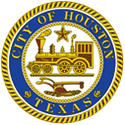 > Opportunity Zones > Frequently Asked Questions
> Opportunity Zones > Frequently Asked Questions
Opportunity Zones
Community - Frequently Asked Questions
What Areas In Houston Are Opportunity Zones?
Opportunity Zones are denoted by census tracts, recommended by the governor, and designated by the U.S. Treasury Department. The City of Houston contains 99 designated opportunity zones.
Why Was My Census Tract Not Included?
Unfortunately, all tracts could not be chosen. Governors could only nominate up to 25% of the state’s eligible low-income census tracts.
How Do Opportunity Zones Spur Development?
Opportunity Zones are designed to spur economic development by providing tax benefits to investors. First, investors can defer tax on any prior gains invested in a Qualified Opportunity Fund (QOF) until the earlier of the date on which the investment in a QOF is sold or exchanged, or December 31, 2026. If the QOF investment is held for longer than 5 years, there is a 10% exclusion of the deferred gain. If held for more than 7 years, the 10% becomes 15%. Second, if the investor holds the investment in the Opportunity Fund for at least 10 years, the investor is eligible for an increase in basis of the QOF investment equal to its fair market value on the date that the QOF investment is sold or exchanged.
What Is The City Of Houston's Investment Priorities?
Priorities include: (a) Affordable and/or Workforce Housing; (b) Retail Development and Food Desert Mitigation; (c) Manufacturing/Distribution; (d) Innovation/Technology; and, (e) Investments with Complete Communities.
What Is A Qualified Opportunity Fund?
A Qualified Opportunity Fund is an investment vehicle that is set up as either a partnership or corporation for investing in eligible property that is in a Qualified Opportunity Zone. Investors can defer and reduce capital gains taxes by rolling investment earnings into Opportunity Funds.
What Is A Capital Gain?
A capital gain is profit from the sale of property or an investment and may come from real estate, stocks, bonds, private equity, private business, etc.
How Does A Corporation Or Partnership Become Certified As A Qualified Opportunity Fund?
To become a Qualified Opportunity Fund, an eligible corporation or partnership self-certifies by filing Form 8996, Qualified Opportunity Fund, with its federal income tax return.
Do I Need To Live In An Opportunity Zone To Take Advantage Of The Tax Benefits?
No. You can get the tax benefits, even if you don’t live, work or have a business in an Opportunity Zone. All you need to do is invest a recognized gain in a Qualified Opportunity Fund and elect to defer the tax on that gain.
Is This A Government Subsidy? How Do I Apply For Available Funds?
No. Opportunity Zones is not a government subsidy nor an entitlement program. There is no city application process as funds, investments and tax savings are not distributed, granted nor loaned out. Partnerships or corporations can defer taxes on capital gains by investing in an Opportunity Zone.
How Do I Attract Qualified Opportunity Fund Investors To Invest In My Community, Property Or Business?
Communities, property owners or businesses seeking to attract QOF investors and influence the types of incoming investments may do their own research to find the right investor to work with.
For more FAQ’s, visit: https://www.irs.gov/newsroom/opportunity-zones-frequently-asked-questions
